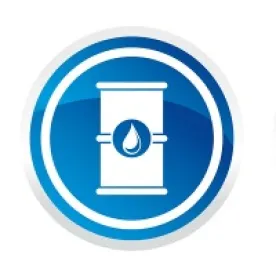On September 17, 2020, the Department of the Interior (“DOI”) issued a proposed “Risk Management, Financial Assurance and Loss Prevention” Rule (“Proposed Rule”) intended to address concerns about Outer Continental Shelf (“OCS”) oil and gas decommissioning costs. The Proposed Rule provides revised evaluation criteria for determining when oil and gas lessees, right-of-use and easement (“RUE”) grant holders, and pipeline right-of-way (“ROW”) grant holders may be required to provide additional bonds or other security to ensure compliance with the terms and conditions of OCS leases. These terms include decommissioning responsibilities, i.e., the costs and obligations associated with the removal of infrastructure and equipment used in the exploration and production of offshore oil and gas. The recent economic downturn, plummeting oil prices, and a surge in bankruptcies has increased concern over companies’ ability to pay for these required decommissioning costs.
The Proposed Rule would amend regulations under both the Bureau of Ocean Energy Management (“BOEM”) and the Bureau of Safety and Environmental Enforcement (“BSEE”). Public comments on the Proposed Rule will be due sixty days after the proposal is published in the Federal Register.
Background
BOEM’s OCS financial assurance requirements have long been the subject of significant criticism. The Proposed Rule would amend the regulations issued by BOEM’s predecessor, the Minerals Management Service, in the late 1990s. The existing regulations set forth five criteria for determining when additional security should be required for leases, RUE grants, and pipeline ROW grants: (1) financial capacity; (2) projected financial strength; (3) business stability; (4) reliability in meeting obligations based upon credit rating or trade references; and (5) record of compliance with laws, regulations, and lease terms. Through a series of Notices to Lessees (“NTLs”) (formal documents used by BOEM and BSEE to provide clarification, description, or interpretation of OCS regulations and standards), BOEM has provided details on how it applies the regulations and these five criteria.
In 2015, the Government Accountability Office (“GAO”) reviewed and recommended that BOEM revise its financial assurance procedures. response to the GAO audit, BOEM issued NTL No. 2016-N01, which required lessees and grant holders to provide additional security for sole liability properties, where the lessee or grant holder is the only party liable for meeting the lease or grant obligations. Such sole liability properties are generally considered to pose the highest risk of passing decommissioning costs onto American taxpayers. For more information on the 2016 NTL, see our previous Alert. February 2017, BOEM issued a Note to Stakeholders announcing that it would withdraw orders issued to sole liability properties pursuant to the 2016 NTL and allow the new Administration to review BOEM’s financial assurance program.
On April 28, 2017, President Trump issued Executive Order 13795, Implementing an America-First Offshore Energy Strategy, which ordered the Secretary of the Interior to direct the BOEM Director to take all necessary steps to review BOEM’s NTL No. 2016-N01 and determine whether modifications were necessary to ensure operator compliance while minimizing unnecessary regulatory burdens. The new Proposed Rule notes that BOEM continued to review the 2016 NTL, while the BOEM website states that the NTL has been rescinded. The current status of NTL No. 2016-N01 is uncertain, particularly with respect to sole liability properties. It is clear, however that BOEM is not presently implementing the NTL and appears to have no plans to do so.
Overview of the Changes
Proposed BOEM Regulations and Amendments
The Proposed Rule intends to clarify and streamline BOEM’s evaluation criteria for determining when OCS lessees, RUE grant holders, and pipeline ROW grant holders must provide additional security above the prescribed amount of base bonds to ensure compliance with their lease and grant obligations. BOEM’s portion of the Proposed Rule intends to protect American taxpayers from exposure to financial loss associated with OCS development, while also ensuring that the financial assurance program does not adversely affect offshore investment. BOEM’s portion of this proposed rule would be a deregulatory action.
Under the Proposed Rule, the BOEM Regional Director would only require additional security when: (1) a lessee or grant holder poses a substantial risk of becoming financially unable to meet its obligations under the lease or grant; (2) there is no co-lessee, co-grant holder, or predecessor that is liable for those obligations and that has sufficient financial capacity to carry out the obligations; and (3) the property is at or near the end of its productive life, and so may not have sufficient value to be sold to another company that would assume the obligations.
Pursuant to the Proposed Rule, instead of relying primarily on net worth, BOEM would primarily consider a lessee’s or predecessor’s credit rating (or if there is none available, a proxy credit rating). According to BOEM, a credit rating would consider forward-looking factors, including the income statement and cash flow statement, which provide a broader picture of how well a company can meet its future liabilities. BOEM proposes to use a credit rating from a Nationally Recognized Statistical Rating Organization (“NRSRO”), as identified by the U.S. Securities and Exchange Commission, or a proxy credit rating determined by BOEM based on audited financial statements. Under the Proposed Rule, BOEM could require additional security if the lessee has a credit rating from a NRSRO that is less than either BB- from S&P Global Ratings or Ba3 from Moody’s Investor Service, or a proxy credit rating less than either BB- or Ba3.
If the Regional Director finds the lessee does not meet the credit rating requirement, then BOEM would look to the proved oil and gas reserves on the lease. If the net present value of proved reserves-to-decommissioning cost ratio is less than or equal to three-to-one, then the Regional Director may require the lessee to provide additional security for that lease. If none of the current lessees meet the credit rating criteria, and there are insufficient reserves, BOEM would look to predecessor lessees’ credit ratings. If there is no predecessor lessee that is liable for decommissioning facilities on the lease that meets the credit rating criteria, BOEM may require the lessee to provide additional security. And, even if a predecessor does meet the credit rating criteria, BOEM may still require the lessee to provide additional security for decommissioning obligations for which the predecessor is not liable.
BOEM would apply a similar review to ROW grant holders and potential guarantors. BOEM would evaluate a ROW grant holder’s credit rating or proxy credit rating, and potentially that of predecessor holders, to determine whether a bond of over $300,000 is needed. For potential guarantors, BOEM would use the same credit rating or proxy rating. In either case, BOEM would not consider the value of proved reserves because ROW grants do not authorize production of hydrocarbons and because the value of proved reserves quantifies the marketability of the lease interest covered by the lessee, not the guarantor’s overall financial strength.
Proposed BSEE Regulations and Amendments
BSEE’s portion of the Proposed Rule intends to support timely decommissioning of infrastructure that could otherwise create safety hazards or environmental harm by becoming an obstruction to navigation or interfering with other OCS uses, such as fishing and future resource development. Overall, BSEE’s portion of the Proposed Rule is not expected to have a significant financial impact on the regulated industry.
For BSEE, the Proposed Rule would create a new procedure for establishing the sequence in which BSEE will order predecessors to carry out decommissioning obligations if the current lessees or grant holders, or other predecessors, fail to do so. Pursuant to BSEE’s regulations, lessees, RUE, and ROW grant holders must decommission wells, platforms and other facilities, and pipelines when they are no longer useful for operations—no later than one year after a lease or grant terminates. If the one-year period passes, BSEE will generally first issue a Notice of Incident of Noncompliance. BSEE has discretion in determining exactly when a lessee or grant holder has defaulted on its decommissioning responsibility. If the current lessee or grant holder defaults, BSEE would then pursue liable predecessors in reverse chronological order through the chain-of-title. However, the Proposed Rule would still allow BSEE the flexibility to deviate from the strict reverse chronological order framework when emergency conditions, environmental threats, or unreasonable delay would otherwise occur. Nothing in the Proposed Rule would exempt any current lessees or grant holders, or predecessors, from liability.
Additionally, BSEE’s portion of the Proposed Rule would require any party appealing a BSEE decommissioning decision or order to post a surety bond when seeking to obtain a stay during the pendency of the appeal, in an amount deemed by BSEE to ensure that decommissioning obligations can be performed in a timely manner. Further, the Proposed Rule would formalize a long-standing agency practice that RUE grant holders accrue obligations for decommissioning.
Timing of the Proposed Rule’s Release
DOI proposes this rule less than two months before Election Day. At a minimum the public comment period on the Proposed Rule would extend 60 days out from date of publication in the Federal Register—and there is good chance that DOI will extend the comment period upon request by stakeholders. After the close of the public comment period, the agencies will need to review and respond to any public comments, and potentially revise the Proposed Rule, after which it will need to be reviewed by the Office of Management and Budget. It seems increasingly unlikely that this Proposed Rule will be finalized before the end of the current Administration.
It is doubtful that a Biden Administration would issue a final rule that restricts DOI/BOEM’s ability to require additional bonding or other security. Notably, BOEM estimates the Proposed Rule would decrease its overall financial assurance amount from $3.3 billion to $3.1 billion. Based upon BOEM’s 2016 NTL, there is reason to believe that the agency still believes that there are under-bonded OCS facilities. While predecessor liability may provide a safety net for some leases, the Proposed Rule notes that since 2009, there have been 30 corporate bankruptcies of offshore oil and gas lessees involving owned or partially owned offshore decommissioning liability totaling approximately $7.5 billion. DOI asserts that the Proposed Rule would nevertheless provide greater protection by focusing financial assurance on the riskiest properties.
Conclusion
Financial security is required to ensure operators can meet decommissioning costs. Operators have faced substantial uncertainty regarding potential supplemental bonding or other security requirements for many years. While this Proposed Rule, if finalized, could help reduce this uncertainty, its issuance within 60 days of a Presidential election makes it unlikely that operators will realize the benefits of the proposal any time soon. Regardless of the likelihood of seeing a final rule under this Administration, stakeholders should strongly consider sharing their views on the proposal to help inform future financial assurance policy and procedures.






 />i
/>i

